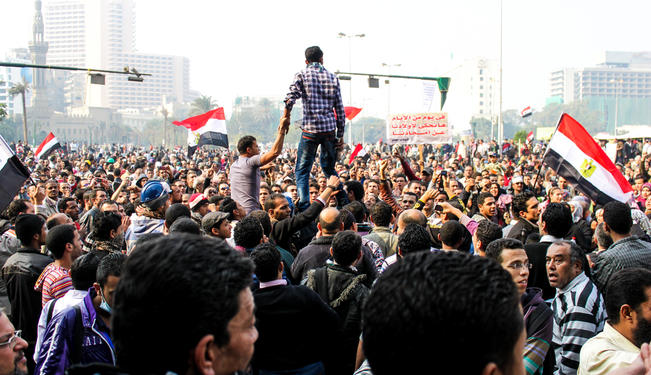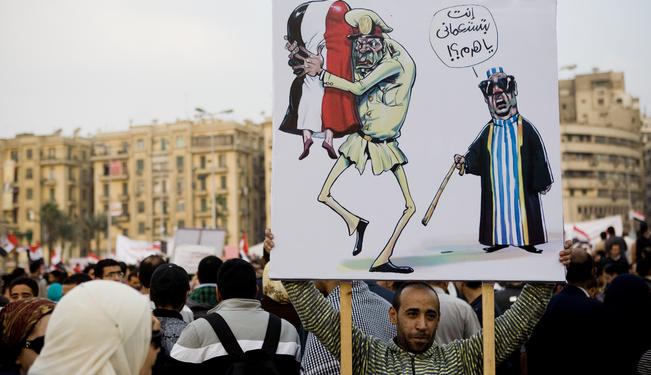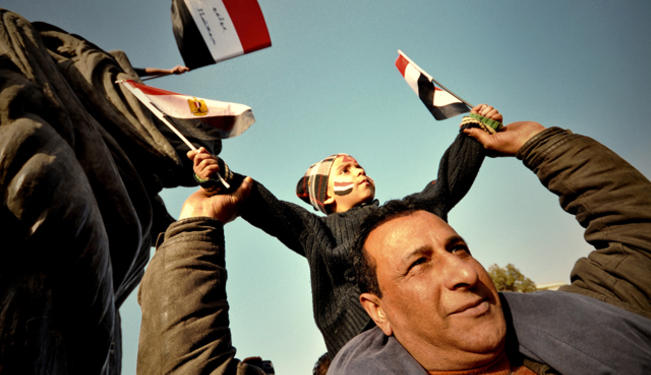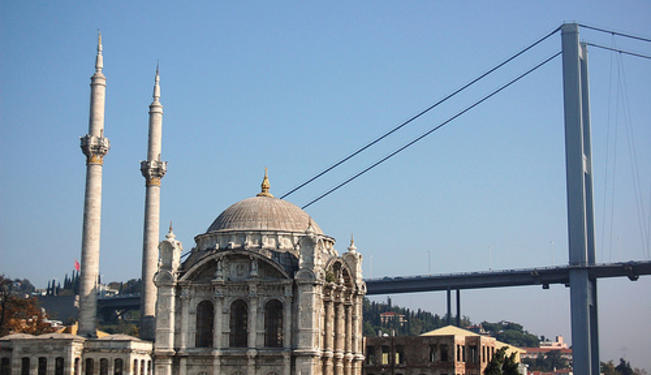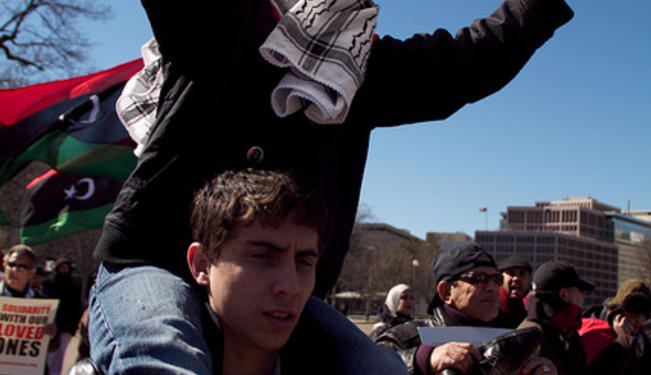
The revolution that started in Tunisia sparked a range of protests in the Middle East and North Africa. Egypt and Algeria followed, as well as Jordan. Then came the civil war in Libya, uprisings in Yemen, Bahrain and Syria, and several demonstrations in other countries such as Morocco, Oman, Sudan, Saudi Arabia, Lebanon, Palestine, Kuwait, Sudan, Western Sahara, and Mauritania. Many compared these revolutions to the “Gdansk Moment” or to the “third wave of democratization,” which Southern Europe and Latin American experienced in the 1970s. The majority of the countries’ regimes were developed through nationalist movements created between the ‘50s and ‘70s in resistance to European colonialism and the status quo that both Americans and Soviets were trying to bring into the region. Indeed, their aim was to overthrow corrupted monarchies subsumed to their foreign allies. These nationalist movements flourished at a regional level. Nasser’s Pan Arabism or Michel Aflaq's Syrian Ba’ath Party are key examples. However, the struggle for power between the countries involved and their common conflict with Israel led to an increased ruling by force. Military coup after military coup, civil war after civil war, and soon any sense of democracy disappeared, leaving most of these countries entangled in a plot with no exit. A labyrinth of state security laws and emergency laws have torn apart their populations. The “saviors” who had opposed foreign influence soon turned their countries into highly militarized dictatorships, oppressing any political freedom, creating extremely poor living conditions, and above all giving no future perspectives for their populations. However, even when ruled with an iron fist, these countries were exposed to globalization and their modernization did not escape from the influences of the Western World. This is exactly what lies behind the present uprisings. The youth refuses to accept an environment with no room for expectations—leading to the significant role of social networks and the Internet in the development of these events. The fact that the present generation are university educated and largely unemployed has also significantly contributed to the course of the protests. Some of the leaders who are being swept out by uprisings and protests—and perhaps in fear of a similar destiny to those already overthrown—have already manifested their intentions to leave their roles of power or in some cases, change their governments and policies. The now former president of Tunisia, Zine Al-Abidine Ben Ali, was forced to flee the country, Hosni Mubarak resigned and is now facing trial, and Muammar Gaddafi was killed. Moreover, Ali Abdullah Saleh, the president of Yemen, is already preparing his way out, Sudanese president Omar al-Bashir will not seek another mandate, and King Abdullah of Jordan has changed the government twice since the start of the protests. What will follow, only time will tell.
For more than 10 years, Fair Observer has been free, fair and independent. No billionaire owns us, no advertisers control us. We are a reader-supported nonprofit. Unlike many other publications, we keep our content free for readers regardless of where they live or whether they can afford to pay. We have no paywalls and no ads.
In the post-truth era of fake news, echo chambers and filter bubbles, we publish a plurality of perspectives from around the world. Anyone can publish with us, but everyone goes through a rigorous editorial process. So, you get fact-checked, well-reasoned content instead of noise.
We publish 2,500+ voices from 90+ countries. We also conduct education and training programs on subjects ranging from digital media and journalism to writing and critical thinking. This doesn’t come cheap. Servers, editors, trainers and web developers cost money.
Please consider supporting us on a regular basis as a recurring donor or a sustaining member.
Support Fair Observer
We rely on your support for our independence, diversity and quality.
Will you support FO’s journalism?
We rely on your support for our independence, diversity and quality.

